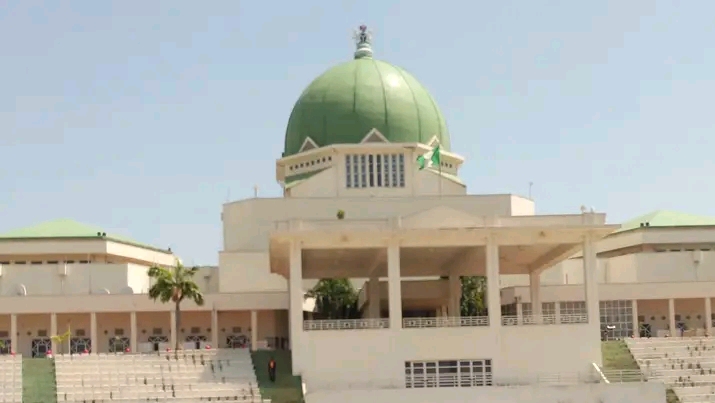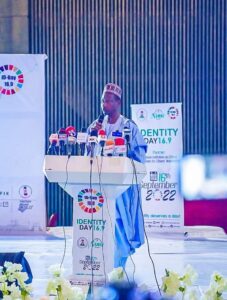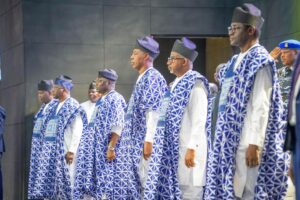
By Abdulhaleem Ishaq Ringim
The 2023 presidential election will undoubtedly be remembered as one of the most fiercely competitive and controversial in Nigeria’s democratic history. In an unprecedented turn of events, the President and Vice President will share the same faith, despite representing a transnational handshake from a regional perspective. However, this religious alignment ignited a political firestorm, giving rise to a movement that leveraged the situation and embraced multi-dimensional identity politics as its primary political and campaign strategy.
The ramifications of these political choices have left deep scars on Nigeria’s sociocultural and political fabric. The APC ticket’s shared faith and the divisive campaign tactics employed by the Obidient movement were strictly yet manipulatively borne out of a quest for political advantage rather than a genuine desire to promote the interests of any particular religion or ethnicity. As I have consistently highlighted, religion and ethnicity are merely tools used by politicians to acquire or maintain power. Regrettably, it appears that our society has been conditioned to fall for these manipulations time and time again.
After a long and hard-fought election, Tinubu, a Muslim hailing from the South West region, has emerged victorious, and will be deputized by another Muslim from the North East. However, the biggest challenge that his government will face is the need to recalibrate the imbalance that has struck Nigeria’s political scale, and to reignite the quest for national cohesion.
The upcoming leadership election for the 10th National Assembly provides a perfect opportunity for the Tinubu administration and the APC to demonstrate their dexterity in aligning national interests with the party’s compensatory interests in the general pursuit of national cohesion.
However, if left to a laissez-faire approach, Nigeria could end up with an unbalanced leadership structure, with four Muslims at the helm of national affairs. If this were to occur, the Senate President and Speaker of the House of Representatives would most likely be Muslims from northern Nigeria. This situation would be a recipe for disaster for both the Tinubu administration and Nigeria at large, as such a skewed configuration would only serve to exacerbate the already strained diversity in the country, and could potentially spark widespread public backlash.
In light of this, it is imperative that the Tinubu administration and the incumbent APC leadership take proactive measures to align the interests of their National Assembly members. The President-elect must bring the APC house together and provide strategic leadership to the party on matters of zoning of the National Assembly positions. The party’s zoning process must be all-inclusive, and the party must go above and beyond to secure the necessary compromises and build overarching consensus in this regard. Concerted efforts must be made to prevent a repeat of the 2015 scenario, and all members of the party should be consulted in order to ensure that a suitable and widely accepted solution is reached.
In building the necessary consensus that will legitimize and strengthen the zoning arrangement, the APC should consider adopting the 1999 model as a reference framework for their National Assembly leadership zoning process. This model is based on the same configuration that saw a President and Vice President from the South West and North East regions respectively, and could provide a suitable framework for the current situation with some modifications to address contemporary peculiarities and political compensation needs.
The model is characterized by a leadership arrangement for the National Assembly that defers the Senate Presidency to the South East and the Speakership of the House of Representatives to the North West while retaining the deputy positions to the North Central and South South respectively. However, as a political party, the need to compensate geopolitical regions for their support based on the party’s performance in the respective regions cannot be ignored.
Hence, the arrangement should be modified in such a way that the zones to which positions of the Deputy Senate President and Deputy Speaker will be deferred are switched while maintaining the Speakership and Deputy Senate Presidency for the North West and North Central respectively. This way, the Senate President will come from the South South, where APC garnered 799,958 votes, representing 29.1% of the votes in that region and got the required 25% in all but one state instead of the South East where APC only got 127,605 votes and got the required 25% in none of the region’s states. This arrangement if adopted symbolizes consistency with the principles of inclusion and balance of power and with APC’s compensatory obligations based on the votes contributed by the respective zones.
Going by this arrangement, the Senate Presidency seem to favor, among the front runners, the Senator that is from a South South State, and that would be Godswill Akpabio, the former governor and distinguished senator from Akwa Ibom state. However, the House of Representatives still presents a dilemma as four members from the North West are contesting the Speakership. The leadership of the House of Representatives undoubtedly requires legislative experience, extensive political acumen, independent mindedness, and a temperament for leadership and cooperation.
Among the four contenders from the North West, Hon. Dr. Tajuddeen Abbas seems to have an edge over the others, especially in terms of legislative experience and capacity, having been in the House of Representatives since 2011 and having served in the most number of House committees, including as chair of the House committee on land transport. However, if reaching a consensus to support Tajuddeen Abbas who seems to be the front runner from the North West proves difficult, the party might consider instituting a poll among House members to ascertain their preferences, or as an option of last resort, allow for an open contest between them.
It is highly imperative to note that whatever decision the APC takes, the zoning process ought to be subject to a consensus of the party’s National Assembly members. The President-elect and the leadership of the party must pursue this assignment with rigor. As has become my favorite definition, politics, especially in a democratic context, is a game of consensus and compromises. The incoming President and the party must recognize and appreciate this and hence, must pursue an inclusive consensus-building exercise via extensive consultations and the securing of necessary compromises in order to establish control over the process.
Failure to be proactive and inclusive in the party’s approach to this process not only provides an avenue for the opposition to decide the direction of the election, being greater in number than the ruling party in the House of Representatives if cumulated and slightly lower in the Senate, but also has the potential of plunging this country into a state of political crisis(or worse) thereby making it extremely hard to govern, especially should the uncontrolled process result in the election of Muslim Northerners as both Senate President and Speaker.
Abdulhaleem Ishaq Ringim is a political and public affairs analyst. He writes from Zaria and can be reached via haleemabdul1999@gmail.com


